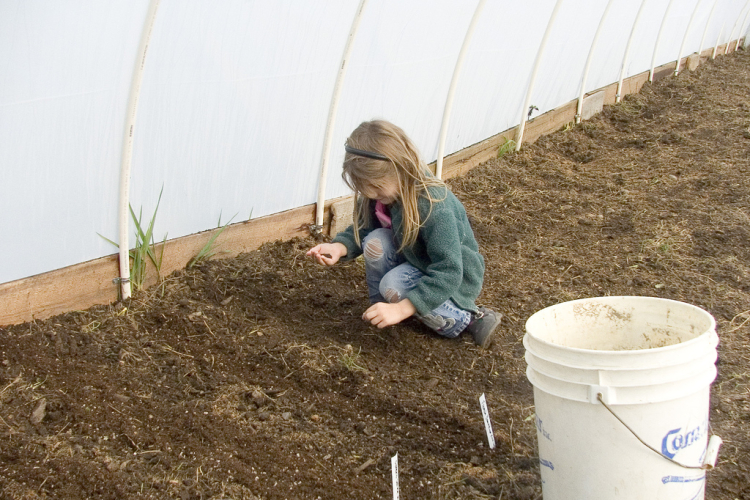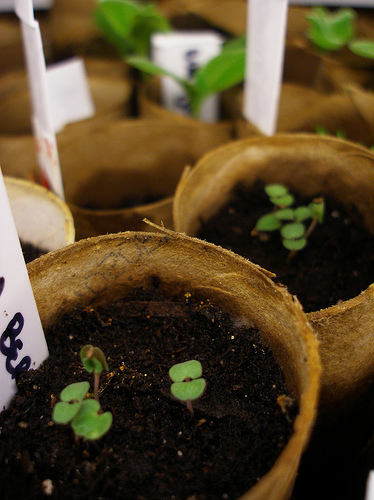Sowing the Seeds for Transformation

As we teach our students, what is the thing that will make the most transformative difference in their lives? Will it be the spiritual formation classes which we’ve labored so hard to make relevant and practical? The opportunities to serve others in their school and greater community? The influence of godly teachers and school staff?
 While all of these things are important, I don’t think they are the most important thing. These are all things that rely on us and what we do. These things reflect evidence of a transformed life, but they, themselves, are not what transforms us. The psalmist declares, “I have hidden your word in my heart that I might not sin against you.”[1] Jesus told His disciples that He was giving them the Holy Spirit who, when He came would “guide you into all truth” and convict of sin and righteousness.[2]One of the most powerful ways that the Spirit convicts is through reminding us of what the word of God says. But in order for us, or our students, to be reminded of what the Word says and to be transformed by it, we must first have hidden this word in our hearts.
While all of these things are important, I don’t think they are the most important thing. These are all things that rely on us and what we do. These things reflect evidence of a transformed life, but they, themselves, are not what transforms us. The psalmist declares, “I have hidden your word in my heart that I might not sin against you.”[1] Jesus told His disciples that He was giving them the Holy Spirit who, when He came would “guide you into all truth” and convict of sin and righteousness.[2]One of the most powerful ways that the Spirit convicts is through reminding us of what the word of God says. But in order for us, or our students, to be reminded of what the Word says and to be transformed by it, we must first have hidden this word in our hearts.
In Western educational systems, learning something by rote memory has gotten a bad name. We focus much of our attention and effort on spurring students to deep levels of cognitive thinking, and often dismiss activities that rely on memorization. However, rote memory does have its place in the classroom. Students who have mastered their multiplication tables have an easier time completing more complicated mathematical processes. The time spent on the rote memorization of one skill benefits students later as they are introduced to other skills that require deeper levels of cognition. Similarly, students who have memorized the word of God have a greater store of truth hidden in their hearts. This memorization is the foundation for a deeper understanding and application of Biblical truth.
 Verses that I memorized in elementary and middle school may not have meant much to me at the time. I’m sure there were times when I rebelled against having to memorize them. My understanding of the verses may have been limited at best. Despite all of this, I developed a deep reserve of truth that years later was brought forth at the prompting of the Spirit, teaching me, convicting me, and encouraging me. As we encourage young people to memorize scripture, we are equipping them and preparing the ground for the transformative work of the Holy Spirit. We may not get to see the fruit, but that’s not the point. As we “train up a child in the way he should go,”[3] we plant seeds that the Holy Spirit can use as he grows older. We can rest in the assurance that “the word of God is living and active…penetrating soul and spirit, joints and marrow.”[4] We know that this word “does not go out void” but “accomplishes the purpose for which it is sent.”[5]
Verses that I memorized in elementary and middle school may not have meant much to me at the time. I’m sure there were times when I rebelled against having to memorize them. My understanding of the verses may have been limited at best. Despite all of this, I developed a deep reserve of truth that years later was brought forth at the prompting of the Spirit, teaching me, convicting me, and encouraging me. As we encourage young people to memorize scripture, we are equipping them and preparing the ground for the transformative work of the Holy Spirit. We may not get to see the fruit, but that’s not the point. As we “train up a child in the way he should go,”[3] we plant seeds that the Holy Spirit can use as he grows older. We can rest in the assurance that “the word of God is living and active…penetrating soul and spirit, joints and marrow.”[4] We know that this word “does not go out void” but “accomplishes the purpose for which it is sent.”[5]
As teachers in Christian schools, we have the awesome privilege of teaching this Word of God to our students. We have the opportunity to plant the seeds of God’s truth. While we certainly want our students to engage with Biblical truths and principles at increasingly deeper cognitive levels, we would be foolish to neglect this critical first step: memorizing scripture. We cannot work transformation in the lives of our students; we can’t even work transformation in our own lives. That is the job of the Holy Spirit. But we can, and should, provide opportunities for our students to hide the Word of God in their hearts. This, I believe is the most transformative thing that we can teach. Let us not neglect this opportunity.
TeachBeyond



